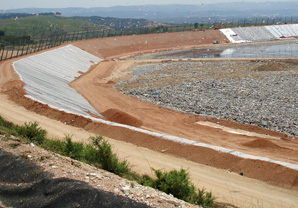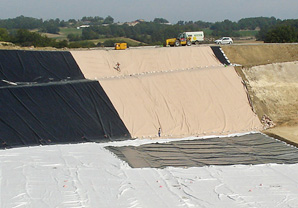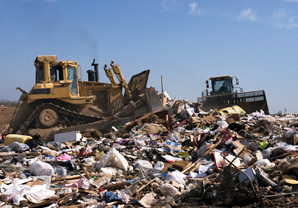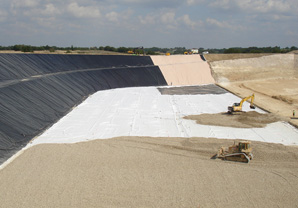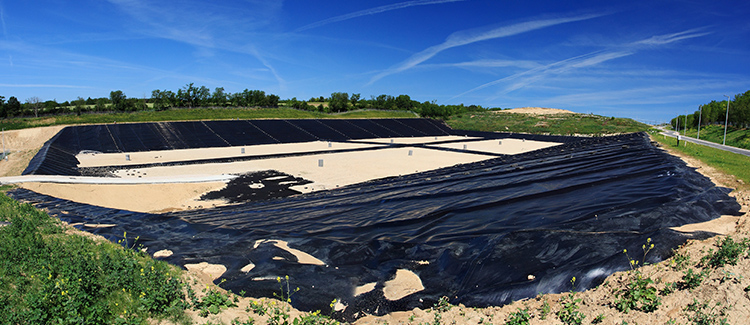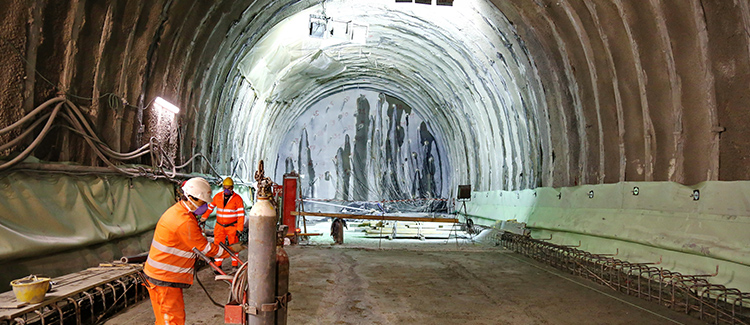LANDFILLS AND WATER BASINS
Geotess® geotextiles on both sides of membranes in waste disposal protect it from perforation.
Geotess® protect impermeable membranes of landfill basal areas, side walls and caps, tailing lagoons, reservoirs,
balancing ponds, reed beds and artificial lakes.
Geotess® NO RIVAL
Specifically developed to respond to the most severe application conditions, Geotess® geotextiles are a breakthrough of importance comparing with other traditional construction techniques.
FILTRATION AND EROSION CONTROL
Supported by a constant innovating tradition, Geotess® has no equals under the most extreme application conditions. The product can reach 2000 gr per square meter and was mainly studied to control erosion in coastal, river and mountain areas.
PROTECTION
90% of the damages to a geotextiles occur during the installation. Geotess® ensure a total resistance to this primary challenge consequently guaranteeing a long life service. It is made of high quality polypropylene fibres allowing it to comply with the strictest project requirements.
DRAINAGE
Thanks to its weight and thickness, it represents a unique drainage system.
Landfills and tunnels are just two of the most common uses of the product.
Geotess® for landfills and water basins
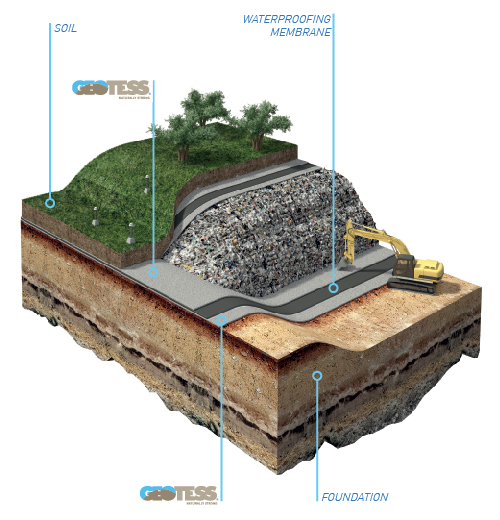
EN 13257
Characteristics required for use in solid waste disposals
EN 13265
Characteristics required for use in liquid waste containment projects
The bottom barrier appears to be the most sensitive component of the whole system dump "as responsible for the protection of the soil from contaminants that may be more or less dangerous to the environment. Specifically in relation to the degree of hazard of the material and of the surrounding environment, Tessilbrenta proposes Geotess®, the geotextile barrier against puncturing of the waterproofing membrane. With Geotess® you can achieve not just the maximum safety but also the maximum functionality and constructions efficiency. The series Geotess® offers the ultimate guarantee in terms of filtration and protection; allows you to design - in every situation and circumstance - the best system can satisfy the highest design standards in compliance with applicable international and EU norms."


